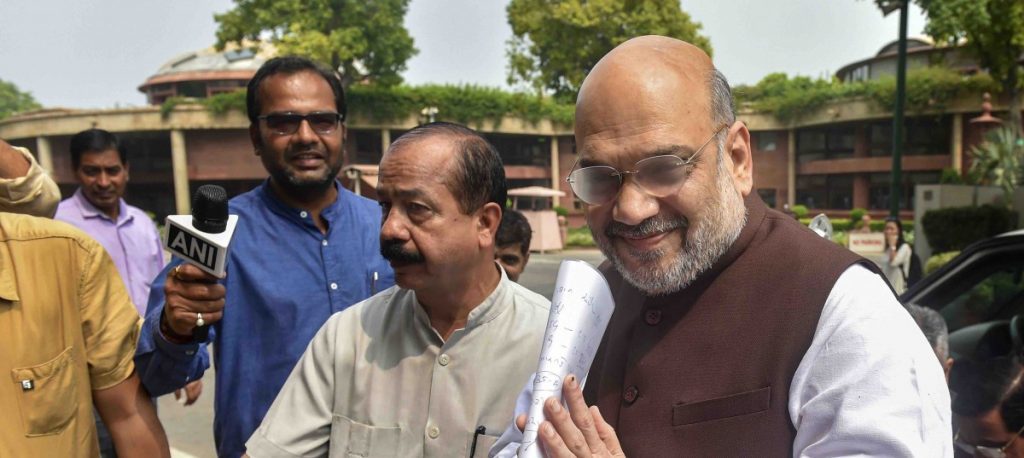On August 5, with no discussion in Parliament and no consent from the people of the state of Jammu and Kashmir, the Central government declared the abrogation of Article 370 that granted special status to the state of Jammu and Kashmir. Provision was also made for the division of the state into Union Territories.
The comfort that we in India have long derived from living under the rule of law, we no longer have. The Constitution need not be altered—with the brute majority that the BJP has in Parliament, it can just get bills passed even though they have no sound legal basis. Rising to speak in Parliament after Article 370 was abrogated, former Union minister P Chidambaram pointed out that Art 370 could scarcely be used to amend itself. It only provides for introducing amendments in other Acts.
When a nation lives under the rule of law, there are predictable rhythms to the lives of its citizens. We know then that certain basic assumptions on which we build our lives as a community will not collapse under our feet one fine day, without discussion, debate or deliberation.
We know, when we live under rule of law, that if our rights are taken from us, we have a procedure in place to appeal and seek redress. We know that we can approach the courts, and expect a ruling based on the provisions of the Constitution of India.
With the flattening of all government institutions under PM Modi, these assumptions no longer hold true. The woman who worked as a clerk in the Supreme Court and complained of sexual harassment by the Chief Justice of India got short shrift; those seeking an impartial probe into the controversial death of Justice Loya, who was hearing a matter in which Home Minister Amit Shah was an accused, were disappointed by the SC even though more and more evidence was dug out about the suspicious circumstances under which the 48-year-old judge died.
But what can conscientious citizens do? We can take to the streets, protest, and, when our conscience does not permit us to follow the rules laid down by our government, actively defy the law. As Gandhi would remind us, we can disobey, and we can be civil about it.
We can also, taking Gandhi’s example, boycott. I, for one, now boycott the Times of India, where I was once an employee. I have observed at close quarters how stories that are unfavourable to the government are often mysteriously dropped. And so, I no longer read the TOI. My puny protest will mean little to a Rs 10,000 crore group, I know. Yet, I will do what I can to strengthen news sources that offer the truth and refrain from patronising those the government can easily manipulate.
(Rosamma Thomas is a senior journalist.)
India’s oldest Socialist Weekly!
Editor: Dr. G.G. Parikh | Associate Editor: Neeraj Jain | Managing Editor: Guddi
Whither, Rule of Law?

Janata Weekly at your finger tips!
Register to get Janata Weekly into your mailbox and whatsapp!
Janata Weekly does not necessarily adhere to all of the views conveyed in articles republished by it. Our goal is to share a variety of democratic socialist perspectives that we think our readers will find interesting or useful. —Eds.
Help us increase our readership!
If you are enjoying reading Janata Weekly,
DO FORWARD THE WEEKLY MAIL to your mailing list(s) and invite people for free subscription of magazine.
Categories
Our Friends
If you are enjoying reading Janata Weekly, DO FORWARD THE WEEKLY MAIL to your mailing list(s) and invite people for free subscription of magazine.
Janata Weekly
Janata Weekly is India’s oldest independent socialist weekly.
Ever since its founding in 1946, Janata has voiced its principled dissent against all conduct and practice that is detrimental to the cherished values of nationalism, democracy, secularism and socialism, while upholding the integrity and the ethical norms of healthy journalism. For more than seventy years now, week after week, it has continued to analyse the changes taking place in the country and the world from a socialist standpoint, and thus promote the spread of socialist ideology in the country.
Address: D-15, Ganesh Prasad, Naushir Bharucha Marg, Mumbai- 400007.
